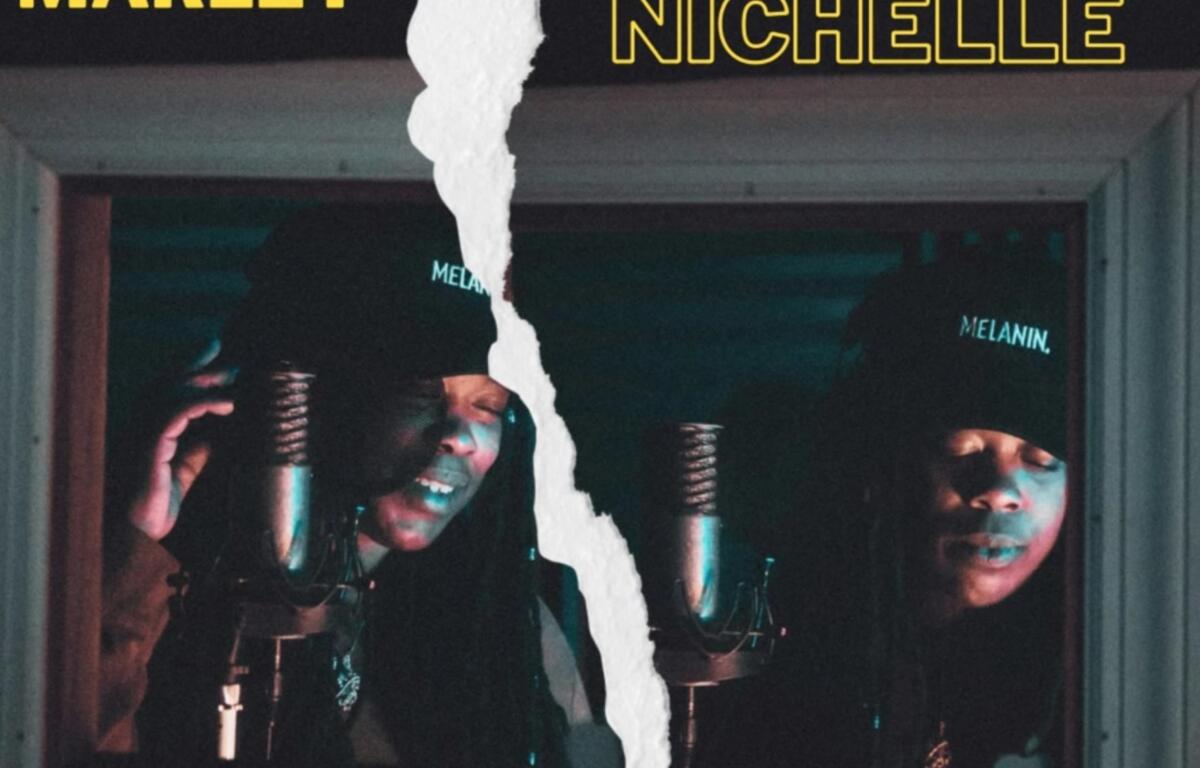Seven years ago, musician and photographer Marley Nichelle had just relocated from South Carolina to Charlottesville when a spoof of an Adele song she posted online in an effort to get tickets to the megastar’s concert went viral. She didn’t get the tickets, but her life and art since then have been on an upward trajectory. Her latest artistic endeavor is a new song she wrote for a friend’s project on the African diaspora.
“She’s been asking me for months to create a song for it. And I was just like, ‘Nah, get somebody else to do it,” said Nichelle, whose culture is Gullah Geechee, people descended from Africans who were enslaved along the lower Atlantic coast. ”She was just like, ‘No, I want your voice’. And I just told her straight up, I’ll think about it. And then one day I heard this beat, and it just came to me. I was just like, ‘I think I got it.’ And I sent it to her and she was just like, ‘This is it.’”
The song, “That is Why,” is now streaming on major platforms and features a West African inspired beat. Nichelle told Charlottesville Right Now the lyrics are simple and inspired by the stress of major life changes.
“I was under a lot of anxiety, and I was just going through the feels, the emotions, and I was just feeling pressure from the world on my shoulders,” she said. “So many transitions I’m going through in my own life; nothing stays the same for me. It’s like things change drastically. I’m always taking on the opportunity, and it’s just trying to find that balance.”
After the online success of her Adele spoof, “Hello from the Parking Lot,” Nichelle’s photography work also exploded. Her photos have been featured in the New York Times, the Associated Press and have been on the cover of the American Association of Italian Studies Journal for the past two years.
She also returned home to South Carolina for a photography project she called the “Geechee Marley Experience.”
“I connect Ghana to Gullah, my culture, and show people the diversity within Blackness,” she said. “I think a lot of times we confuse race with culture, and my motto is, in order to know who you are, you must know where you come from.”
Thinking about culture first and race second has helped her understand her own identity.
“I feel like if we change those narratives of where we put ourselves first, of who we are, then we can see ourselves. And that’s why I really fell in love with photography. It is kind of like journalism a little bit when you go into different places and spaces and communicate and hear stories,” she said. “Putting it all together is the best part.”
Listen to the full interview with Marley Nichelle here.



